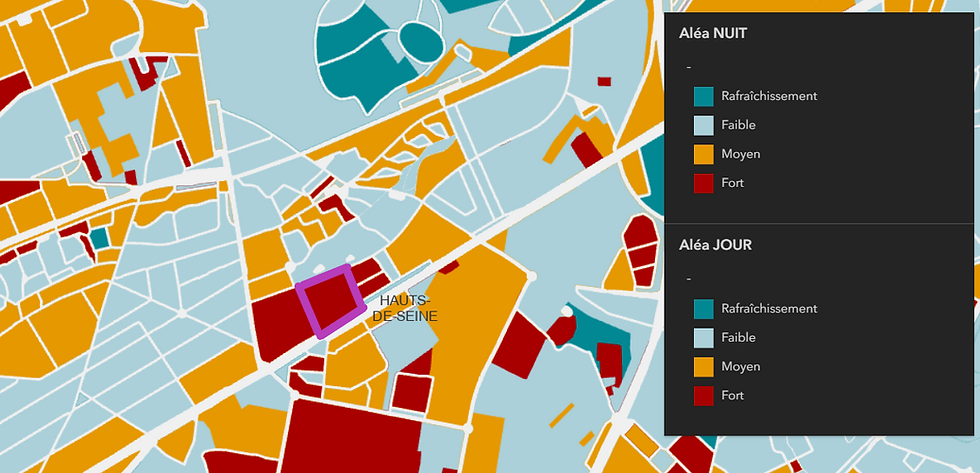Trappy Blog: In a controversial Paris suburb, young journalists tell a different story
- Elitsa GADEVA
- Oct 25, 2023
- 3 min read
By Bilge Kotan

TRAPPES, France Oct 2 (Sciences Po) – Trappes, a working-class suburb thirty minutes west of Paris, is known for all the wrong reasons: violence, unemployment, and radicalism. Through a blog, a group of young Trappes residents want to tell a counter-narrative through stories written by and for their peers.
With a national record of 67 residents having joined ISIS
in Syria, Trappes found itself at the center of a national discussion about radicalism and became a symbol of the troubled French suburbs in the media – despite also being the hometown of a string of sports and entertainment celebrities.
“When you say you’re from Trappes, you’re excluded, you’re feared and not employed,” said Trappy Blog founder Mehdi Litim.
“What I'm doing is just dropping little facts, just drops in the ocean. I’m preparing the youth to be able to say that I’m suffering from the consequences of how the media portrays us.”
This formula has worked well for Bondy Blog – a website launched in 2005 in the wake of weeks of suburban riots that resulted in the death of two people in Bondy, an equally poor suburb northeast of Paris. It was eventually able to start a conversation about French media’s coverage of the suburbs. Inspired by the Bondy Blog, Trappy Blog keeps rather a modest level of readership but for Mehdi, it’s a success each time a young writer whose patch crossed with his blog succeeds in life.
Dropping out of school is one of the most widespread problems in the city and unemployment is almost double the national average. According to INSEE, France's National Statistics Service, the unemployment rate was %16 in 2020, while the national average was %8 the same year.
Son of an Algerian father and French mother, the editor too once dropped out of high school to help his financially struggling single mother.
“I know how it is not to feel secure at home, I know how it feels like being a man who doesn't know what to do in life,” Litim said.
Litim too was one of the few who have managed to break through the barriers that have held back so many Trappes’ youth. But in the end he decided to return to school and succeeded in graduating with a master’s in Finance at Sciences Po, an elite French university.
Even then, he remembers, he was able to connect with his French classmates. It took some time to be comfortable in voicing his opinions as a youth from the suburbs.
“No one told the youth that their opinion matters but allowing them to write for the Trappy Blog allows them to regain the dignity that is shockingly new for them,” he said. “When you listen, it changes their life.”
Recurring topics in the Trappy Blog are gender equality, identity, and politics.
Marwa, a 25-year-old Algerian student – who arrived in Trappes at the age of 12 - said she had not received a good education that would take her forward, but then her high-school teacher introduced her to the Trappy Blog.
“It gave me self-confidence, it allowed me to feel legitimate in circles other than those in which I am used to and it gave me a plus in my CV,” she said.
Her newly found confidence became a means to enter a prestigious law school, the University of Versailles in Saint-Quentin-en-Yvelines, a chic department near Trappes.
At the university, however, “Islam out of Europe” painted on restroom doors signaled the Muslim young woman she was not welcomed as she hoped. Marwa says she ended up not mixing and becoming friends with people who came from the same class as her. Feeling discriminated against, she found refuge in the blog. She wrote about the professional experience of cleaners, the teacher who changed her life, and police violence.
“The Trappy Blog gave importance to my point of view just at a time when I needed to express myself,” Marwa said. Even though Trappy Blog was hardly able to change the media narrative around Trappes, she says it offered her what exactly she needed.
In September, Litim expanded Trappy Blog to Trappy Blog Radio through a partnership with Marmite FM, a local radio station near Saint-Quentin-en-Yvelines in a bid to offer a forum to Trappes’ youth, including those who are not comfortable with expressing themselves on text.
“Because if the youth don’t speak up now, the risk is falling apart,” he said.


Comments